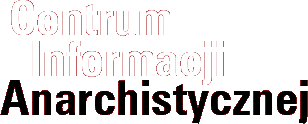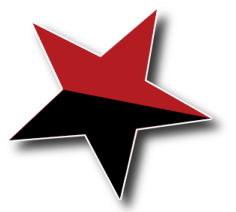Verdict: DEPORTED!!!!!
On May 27th at 18.35 a strange man approached seat number 22D of International Ukrainians Airlines airplane, flight 204. His boots did not have laces and were slipping off with every step. Neither did his pants serve him well, as they lacked a belt and were slipping off. He had no carry-on bags. He was followed by ten other such strange passengers. Their faces revealed that they were on this plane as a result of unusual circumstances. These were not terrorists, but they were treated like terrorists. These were regular people, but they weren't treated like regular people. In the airplane cabin, they were escorted by security. They were deportees.
Removed from a bus heading from Madrid to Lviv, because of absence of a
transit visa for passage through Germany, these Ukrainian seasonal
migrant workers were forced into air transportation--into air travel so
they couldn't return to the European Union. The Berlin airport from
which they were deported was the last stop on their journey.
On this flight was this strange man -- strange to the passengers of this
Berlin-Kiev flight -- but in reality a very ordinary man -- Vasil
Vovchanski. In Germany, he was made into a criminal. At home in
Ukraine, he is a respected man and social activist.
The following is Olha Samborska's interview with Vasil Vovchanski about
his flight through Europe.
Vasil, why did you go to Spain, and why were you returning?
In 2007, I worked as a forest ranger [in Ukraine]. Before that, I worked
as a cashier in a rural administration. My pay was low in both jobs.
Then it happened that my brother became ill, and he needed money for
treatment. So I decided to go to Spain to earn money. In the meantime,
my brother was undergoing pre-operative observation. And I hit the
road. I thought I would help my brother, and at the same time would see
Europe up close. Well, I saw it.
Your expectations of the rest of Europe were not met?
It all happened not as I expected. The pay wasn't great, but compared
to our [Ukrainian] money, it wasn't too bad. From time to time, I also
worked like this in Poland, and earned relatively good money. But at
that time, to get a Polish visa was problematic. But then, here, an
opportunity for contract work for a Spanish farmer turned up. The
Ukrainian firm Lviv-Intourtrans was the "middle man." Everything was
legal and in order.
Did you want to stay in Spain?
I often called home from Spain. One time I was told that my brother
needed urgent surgery. I needed to return, so as to bring money for the
operation. [In Ukraine, there is not health insurance system.] I
informed the firm of the situation, and right away, got a pre-paid bus
ticket from Madrid to Lviv. Because I had a valid Spanish visa, I
didn't anticipate problems at borders. And here in Germany, documents
were being checked at nonexistent borders, [Since 2008, the border
between Germany and Poland was eliminated, by the Schengen Agreement.]
Then I was removed from the bus with no explanation. An armed border
guard convoy took us to the border police department.
Were you arrested?
I thought they would check and release me. In the worst case, I thought
they would deport me for a short time. But here, their frisking took
the form of mocking harassment, with the demonstrative throwing out of
the food we brought for the road. My request to be allowed to call the
Ukrainian embassy in Germany or to inform my family of the situation was
ignored. I never thought they would take the money we had on us. I
asked them not to take the money because I was bringing it home for my
brother's operation. But my requests were useless.
How much money did they take from you?
All that I earned in Spain---1,500.00 Euros.
Could you have asked for a lawyer?
No. There was just a trial, a "fair" trial. Papers were prepared with
our data, which we just had to sign at this trial. The contents of
these papers, we didn't understand. After this trial, we were driven to
jail. There we were strip-searched. At this point I couldn't tolerate
this and said, "Guys, I didn't hide anything there." They took my
fingerprints, photographed me, and finally sent me to a cell. They took
away my jacket, shoelaces and belt. I was shocked that such a stand-up
country as Germany does something like this to people.
I can imagine how shocking this demeaning ordeal was for you. Was it
difficult to control yourself?
When they put me in the cell with the others, one Polish man rolled a
cigarette for me. I smoked one, another, a third; even though, I'd
never smoked. I didn't eat anything; I didn't want anything after this
shock. This is how I spent the night in a cold cell on the
Polish-German border. In the morning, we were handcuffed, put on a bus,
forbidden to talk to each other, and were driven to an airport in Berlin.
How was it at the airport?
At first they kept us in a room without windows or toilet for some time,
then again, frisked us, and drove us to an airplane. Before boarding, a
lead guard came up to us and communicated that we were flying with the
International Ukrainian Airlines with the status of deportees. He also
added that we were flying at the cost of the German and Ukrainian
governments. This was amazing to me -- why were we flying at the
governments' costs, when they took such a large amount of money from us?!
And then?
Then the police formed a row, and through it, we were transferred to
some other security guards' custody. They seated us in the very tail of
the airplane. Before that, we were warned not to talk to the airplane
passengers. After some time, the passengers were let on. And here,
again, more amazement: A famous Ukrainian Parliament member, Ivan
Zayets, boarded the cabin. He saw us, but pretended not to see us. In
Kiev, when the plane landed, Zayets was the first to stand up, take his
things and exit. We were allowed to leave the plane after all the other
passengers exited.
Were you fed on the plane?
We were fed just enough to make it to Kiev. Our security guards were
fed like they were pigs being fattened for slaughter. Actually, one of
the guards shared his food with a woman who sat next to him.
Did the other passengers pay attention to you?
I didn't notice any particular attention. I had the impression that a
procedure like deportation, gave a tolerant European little cause for
concern.
How did the flight crew treat you?
They behaved adequately. One girl was nauseous, and they gave her an
oxygen mask. One woman asked for water, and they granted her request.
There was also one thing that amazed me. We were asked if our luggage
can be processed under one person's name? I understood that for them
providing papers for each of our luggage was a big deal. But for me it
was a huge amazement. How could they consider everybody's baggage under
one person's name. One for everybody as we were one substance together?!
So, your luggage didn't actually belong to you. Did you have a passport
on you?
The passports were returned to us after the flight. Until then,
security probably had our passports.
So this is how you flew, without passports, without baggage, with
everyone's baggage under one person's name, with one tragedy for all,
until you were greeted by Ukraine. How did you feel upon returning to
your homeland?
When I saw my homeland, and took step on it, I thought of Cardinal
Liubachivski. After many years of exile and surveillance by the Soviet
government, he returned to Ukraine during a time of political
reconciliation. He came out of the airplane, fell to his knees and
kissed the ground. At the moment of my return, I remembered his expel
by the Soviet regime. I felt myself expelled by the "European
Democracy." Europe turned its back to me.
0 Jan 2009 By Olga Samborka, Berlin
/Translated into English by Anna Linx/






